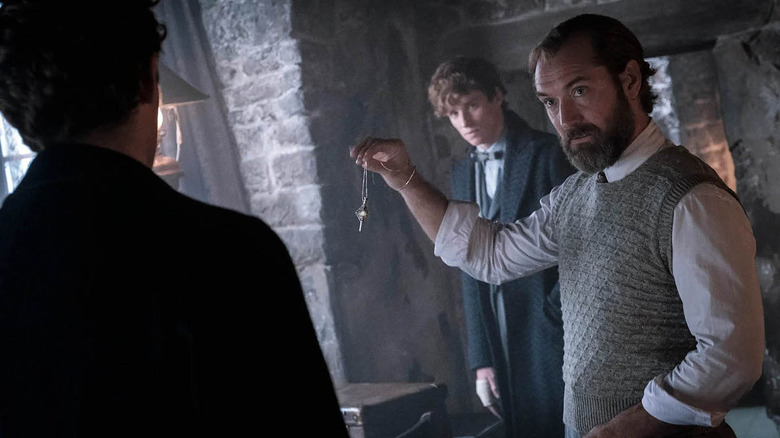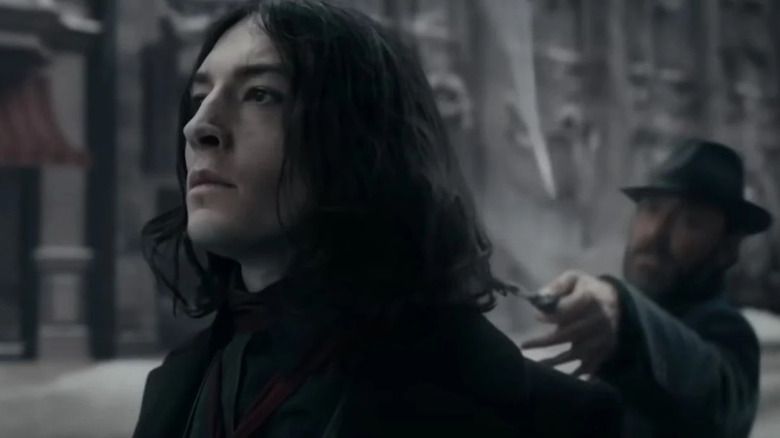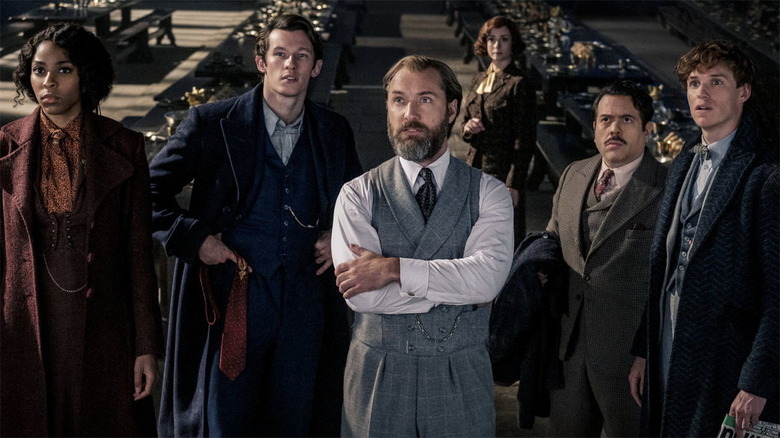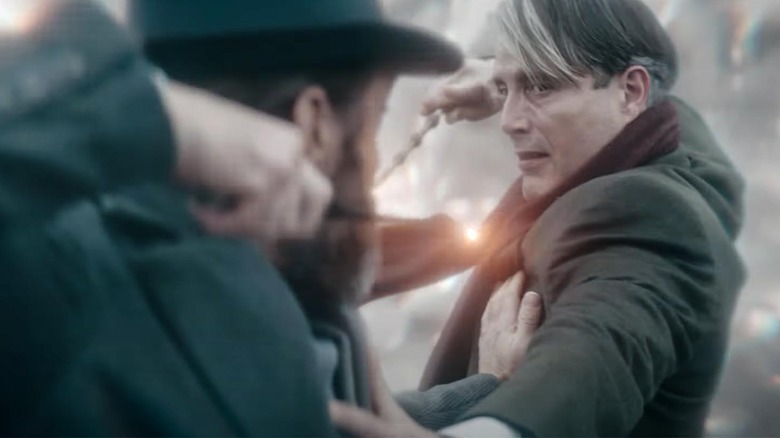Fantastic Beasts: The Secrets Of Dumbledore Ending Explained: Who Lives, Who Dies, Who Tells Your Story
"Fantastic Beasts: The Secrets of Dumbledore" is finally here, after being plagued with controversy, delays, casting changes, and a general lack of interest that has turned into box office disappointment.
Still, for a certain section of moviegoers, a new movie in the Wizarding World is worth checking out, or at least worth reading about. If that's you, and you're curious about what the big deal is with Dumbledore and his titular secrets, and whether this movie takes us any closer to the 1945 duel between Grindelwald (Mads Mikkelsen) and Dumbledore (Jude Law), this guide is for you.
The last film ended with Grindelwald escaping into the night, having shared his argument that wizards needed to choose either fascism or allow the Holocaust to happen. Now, it's election time for the magical world, and apparently the only voting system in place leaves everything up to a magical creature known as a Qilin to choose whichever candidate is "purest of heart." Dumbledore, unable to move against Grindelwald due to a magic blood pact, recruits a group of wizards and witches to do his bidding and stop the fascist wizard from meddling with the election.
Now that the general plot is out of the way, we're going to dive right into the ending of "Fantastic Beasts: The Secrets of Dumbledore."
Warning, full spoilers ahead for "Fantastic Beasts: The Secrets of Dumbledore."
I've got a secret, he's got a secret, we all have secrets
One of the titular secrets of Dumbledore is actually answered in the very first scene of the movie, when Dumbledore and Grindelwald meet to discuss their blood pact and romantic past. Yes, "The Secrets of Dumbledore" finally lets the titular character be gay on-screen and talk about his romantic relationship with Grindelwald — and how it got messy with the addition of a plan for wizard supremacy, but what relationship is perfect?
This is arguably the best thing about the movie, because it adds more nuance to Dumbledore's character than we've seen in most of the "Harry Potter" movies. This is not only a man who fell in love with the wrong guy, but was also convinced to go along with horrible plans out of desperation to get away from his mundane life. He even continues to care about Grindelwald enough that his entire plan in this movie is a Rube Goldberg machine, using a bunch of random wizards to do his bidding for him — foreshadowing his knack for having kids do his dirty work for him in the "Potter" series.
The other big secret, of course, concerns Credence (Ezra Miller). He was revealed to be a Dumbledore in the last movie, but has very little to do here, being tasked with assassinating Dumbledore, and miserably failing to do so. And the secret? Turns out he is the son of Aberforth Dumbledore with a muggle women he knocked up as a young man and then abandoned, that's it. In the end, father and son get reunited and we are left to assume they bond a bit off-screen before Credence dies because apparently his Obscurial powers are poisoning him.
A pointless election, and a bittersweet ending
As for the election? Well, after Grindelwald is somehow allowed to run for wizard president, Dumbledore and his minions present a Qilin to the voting community in Bhutan, knowing Grindelwald would fake one of his own to appear worthy of the post.
But there is a slight complication. Despite his very messy life, his past in aiding a supremacist, and generally being a lousy professor, Dumbledore is chosen by the Qilin as the next president. Luckily, he can simply reject the proposal, and the creature picks one of the actual candidates instead, the Brazilian candidate Vicência Santos (Maria Fernanda Cândido). Enraged, Grindelwald goes for the attack, and a fight breaks out that manages to break the blood pact between him and Dumbledore, allowing them to duel to their heart's content.
The film ends with a reconciled Jacob (Dan Fogler) and Queenie (Alison Sudol) getting married in New York, with the main characters in attendance. Meanwhile, a sad but still hot Dumbledore watches silently and somberly from outside, with a heavy heart that knows he will never be as happy with someone as he was with Grindelwald, and knowing he will have to fight his former flame soon.
Despite some good moments and characterization, this very much felt like another middle chapter in the story. The introduction of this whole election and a larger magical community ended as quickly as it was introduced. Worse yet, the end of the blood pact has little meaning when we end the film with over a decade left to go before the duel between Grindelwald and Dumbledore.
Not so fantastic beasts
Ever since the second "Fantastic Beasts" movie introduced hot young Dumbledore, it became clear that this franchise was more interested in becoming a "Harry Potter" prequel than a spin-off about the larger Wizarding World. This movie improves upon the previous one in pacing and characterization, but when it comes to story, this continues the worst trend of its predecessors by getting rid of anything that made the concept of a movie about fantastic beasts fun.
Indeed, by the time "The Secrets of Dumbledore" ends, we are left with barely anything to justify the increasingly small "Fantastic Beasts" title, with every supporting character from the previous movies getting a conclusion to their story. What we are left with are Dumbledore and Grindelwald, and the promise of maybe, but maybe not telling the next two chapters in this story. Still, does this movie at least have a post-credits scene?
"Fantastic Beasts: The Secrets of Dumbledore" is now in theaters.



